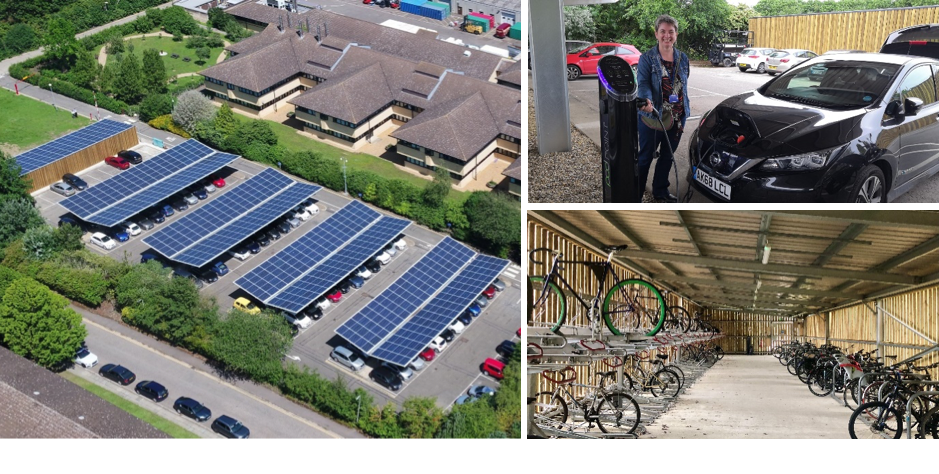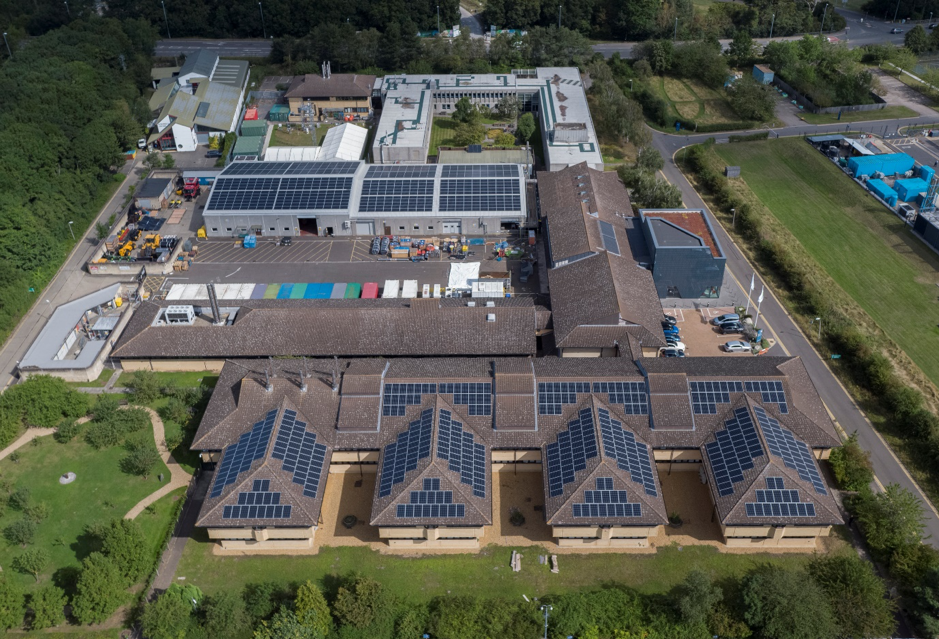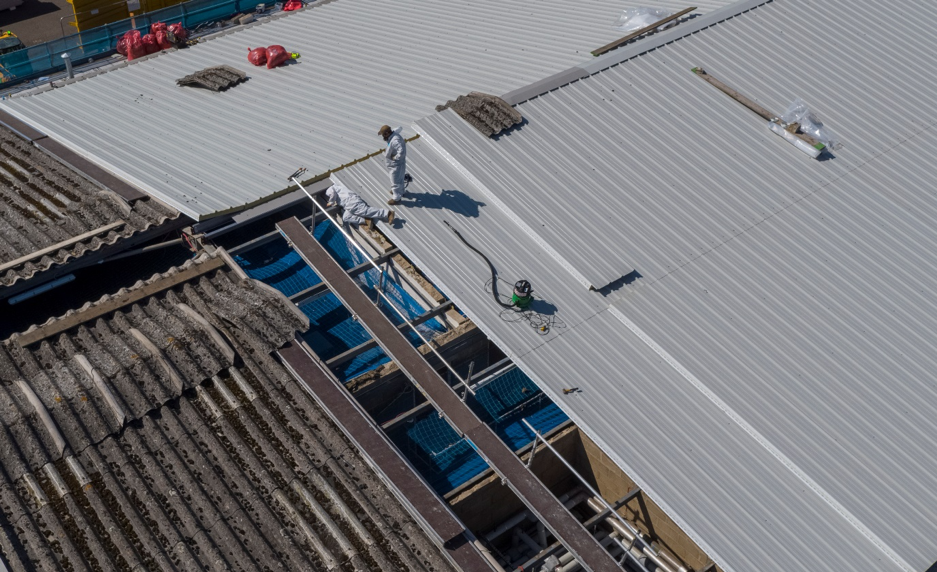Cambridge HQ Decarbonisation
Cambridge HQ Decarbonisation
Around 400 people are based at our UK headquarters in Cambridge, with workshops, offices and labs to support our research and logistics in the Antarctic. We are working on a raft of measures to reduce our carbon emissions at our Cambridge Headquarters, including installation of solar panels on the car park and roofs of buildings, and adding insulation to our Logistics building.
The works are part of our commitment to achieving Net Zero carbon emissions across our Cambridge Office and Antarctic Stations by 2030, aligned with the UKRI-NERC Environmental Sustainability Strategy.
Solar Carpark
Our solar carpark allows us to generate our own source of renewable energy to power our buildings and provides an electric vehicle charging facility to our staff and visitors.
The £800,000 Solar project was funded by the Natural Environment Research Council and BAS. Construction took place from March 2019 to July 2019 and was built by renewable energy consultants EvoEnergy.
This project also gave us the opportunity to increase the security of our carpark with the addition of entrance and exit barriers and CCTV coverage.

The carpark includes four solar carports – ground-mounted canopy installations stretching out over the existing car parking spaces featuring pitched roofs with mounted solar panels. In total, the solar panelled canopies cover over 96 parking spaces.
The solar carpark allows us to generate our own source of renewable energy to power our buildings and has had significant impact on the BAS Cambridge carbon footprint. To date the solar carpark has generated a total of 377,426 kWh.
It has helped us achieve an annual reduction in carbon footprint by 60 tonnes of CO2e, equivalent to planting over 2500 trees by December 2021. The solar panels currently provide on average 10% of our electricity a year for the Cambridge site with a peak of 27% during a normal summer. This was heightened during the 2020 work from home order due to COVID, with a peak of 42% of site-wide electricity being generated by the carpark and bike shed alone.
Solar Bicycle Facility
We promote green and sustainable ways for our staff to commute to work. A new secure bike shed with a solar roof was installed at the end of the Cambridge HQ car park. This has increased bicycle storage capacity by 50% through the use of 2-tier racks. There is an allocated space for larger cargo bicycles and tricycles, along with a bicycle repair stand. It has also been fitted with rainwater collection to use by the gardening team.
To make our Cambridge HQ more bike-friendly and safer for cyclists, there is now a cycle path with dropped kerb access as well as an improved pedestrian path.
Solar Roofs
BAS also have two solar roofs installed at our Cambridge headquarters, commissioned in 2022, providing an estimated 15% of the annual electricity demand. This £800,000 solar project, funded by UKRI-NERC, involved installing solar panels on the roofs of Supply Chain Logistics and Science Building 2. The two roofs combined have over 1,200 panels with a nominal power of 356.25 kWp. This reduces our carbon footprint by 70 tonnes CO2e, equivalent to planting 3,181 trees. The solar arrays also save us £28,000 a year and are expected to be operational for 25 years.

In addition, since April 2019, BAS has been purchasing low-carbon electricity from certified renewable technologies (like wind, solar, and biomass) through the CCS Framework and EDF Renewable for Business.
Insulation improvements to the Logistics Building
The Logistics Building is our central hub for all BAS operations in Cambridge. It comprises a traditional portal steel-framed structure with concrete spandrel cladding and an asbestos roof. The original structure had little insulation in the roof and none in the cladding, leading to high heat loss in winter and large heat gain in summer. In 2021, BAS installed a new highly insulated roof (100mm Kingspan PIR) and new external wall insulation (100mm Rockwool Mineral Wool) to provide far greater stability of internal temperature and extend the building’s lifespan.

Future projects
We will continue to work on projects to enable us to reach our goal of net zero emissions at our Cambridge Headquarters and limit our impact on the environment.
In order to fully decarbonise our Cambridge site, we are considering the replacement of our existing natural gas boilers with a combination of ground source and air source heat pumps. We have completed a feasibility study that identified potential solutions and will help us develop a degasification strategy for the site. We are also investigating further improvements to increase the energy performance of the existing buildings on site to reduce heating energy demands.